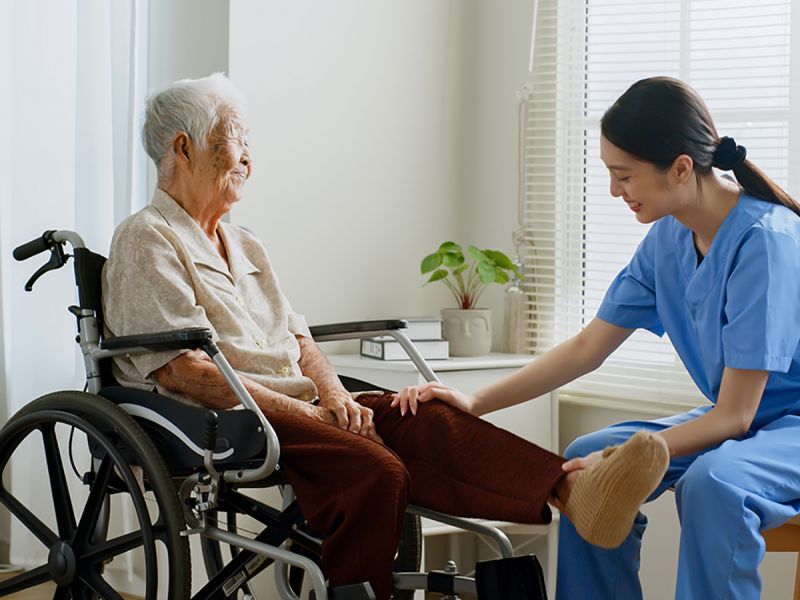How to Stay Positive During Short-Term Care

Staying happy and getting out of short-term respite care faster as an older adult can be influenced by several strategies. Here are some effective approaches:
Physical Well-being
- Follow a Healthy Diet: Eat nutritious meals that include fruits, vegetables, lean proteins, and whole grains. Proper nutrition can speed up recovery and improve mood.
- Exercise Regularly: Engage in light physical activities such as walking, stretching, or prescribed exercises. Regular movement can enhance physical strength and mobility.
- Follow Medical Advice: Adhere to the prescribed medications and therapies. Attend all scheduled medical appointments and follow the doctor's recommendations.
Mental and Emotional Health
- Stay Positive: Focus on positive thoughts and practice gratitude. Remind yourself of things you are thankful for daily.
- Engage in Hobbies: Pursue hobbies or activities you enjoy, such as reading, knitting, or playing a musical instrument, to keep your mind active and engaged.
- Mindfulness and Relaxation: Practice mindfulness, meditation, or deep-breathing exercises to reduce stress and improve mental well-being.
Social Connections
- Stay Connected: Keep in touch with family and friends through visits, phone calls, or video chats. Social interactions can boost your mood and provide emotional support.
- Join Group Activities: Participate in group activities or social events organized by the care facility. Engaging with others can prevent feelings of isolation and loneliness.
Practical Strategies
- Set Goals: Set small, achievable goals for your recovery. Celebrate each milestone to stay motivated.
- Communicate with Caregivers: Maintain open communication with your caregivers and healthcare providers. Express your needs and preferences clearly to ensure they are met.
- Stay Informed: Educate yourself about your condition and the steps needed for recovery. Understanding your situation can empower you to take an active role in your care.
Environmental Adjustments
- Personalize Your Space: Make your temporary living space feel more like home by adding personal items such as photos, favorite blankets, or other comforting items.
- Utilize Technology: Use technology to access entertainment, educational resources, or virtual social interactions. Tablets and smartphones can be excellent tools for staying connected and entertained.
Seek Professional Support
- Therapy and Counseling: Consider talking to a therapist or counselor if you feel overwhelmed or anxious. Professional support can provide coping strategies and emotional relief.
- Physical and Occupational Therapy: Actively participate in any physical or occupational therapy sessions provided. These therapies can help you regain independence faster.
Lifestyle Adjustments
- Maintain a Routine: Establish a daily routine to provide structure and a sense of normalcy. Regular routines can help you feel more in control and less stressed.
- Stay Hydrated: Drink plenty of water to stay hydrated. Dehydration can affect both physical and mental health.
Implementing these strategies can enhance your overall well-being, potentially accelerating your recovery and allowing you to return home sooner from short-term respite care.
